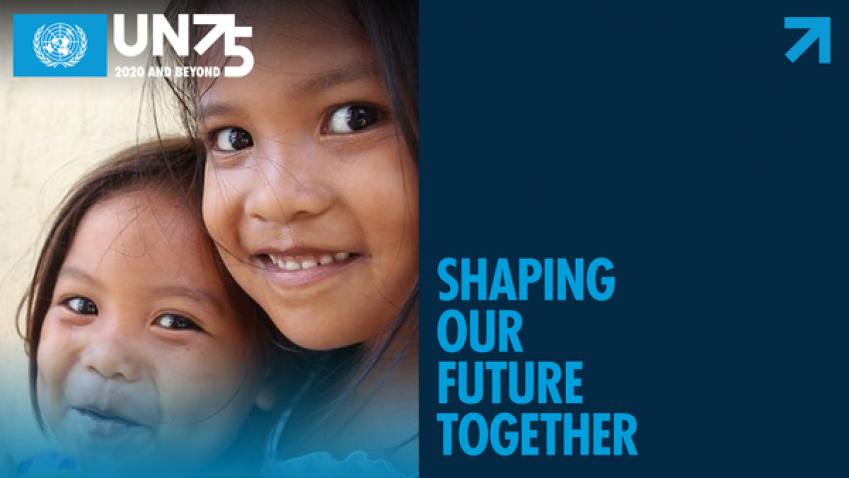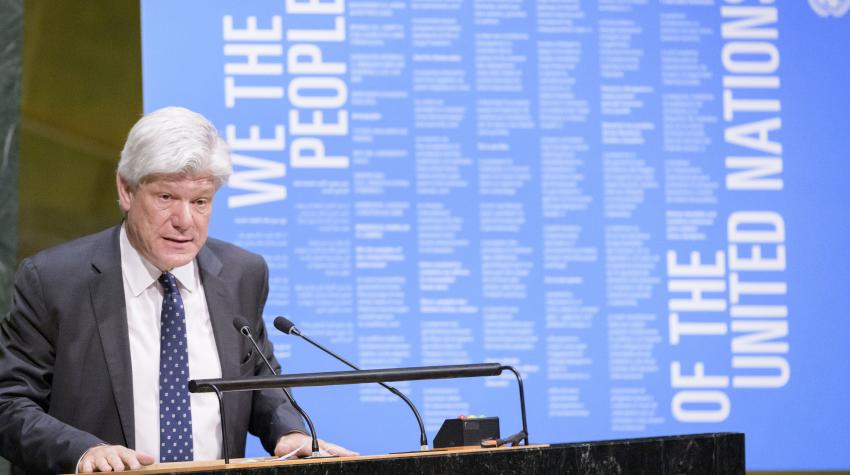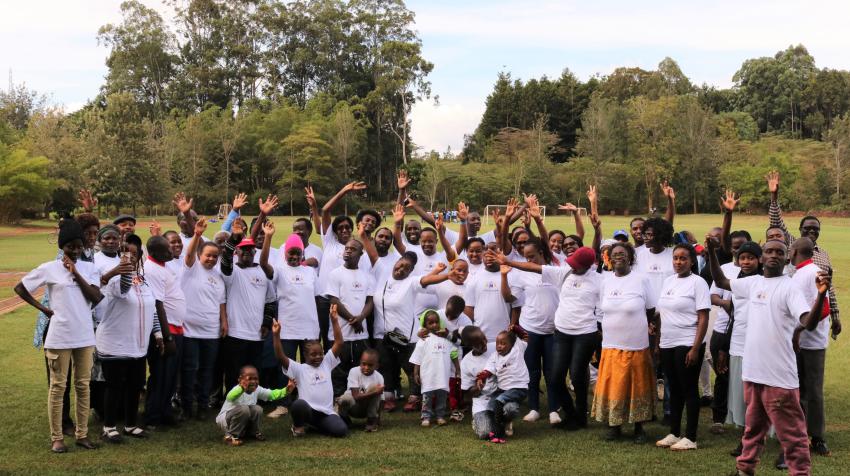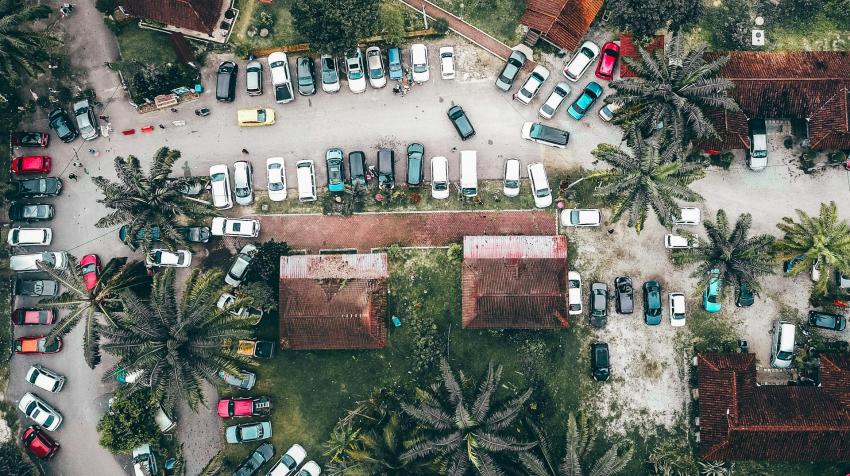24 April 2020
The United Nations turns 75 this year. It is a time of great upheaval for the world, as it was in 1945 when the Organization was founded. Many of the trends we grapple with today could not have been imagined by people back then: that human actions would fuel global temperature rise, posing an existential risk to our species and a million others. That new technologies would radically reshape how we live, work and interact with each other. That greater affluence and longevity would be accompanied by challenges of their own.
But many of the problems we face would have been all too familiar: from conflict to mass displacement, big power rivalries to corrosive nationalism, and inequality to pandemics. The experience of the 1918 H1N1 flu outbreak, estimated to have infected a third of the world’s population, would still have been present in many people’s minds.
We have come a long way over the past seven decades, with huge strides forward in education, and in tackling extreme poverty and hunger. We have moved from a world in which a third of the population lived in non-self-governing territories and most women did not have equal voting rights to one that is freer by many measures.
We have won great victories. The eradication of smallpox—spearheaded by the World Health Organization, with sustained political and financial support from the international community—alone has saved millions of lives. It remains the only infectious disease to have been wiped out.
Yet progress has been uneven, and failures well-documented and tragic. As we mark the International Day of Multilateralism and Diplomacy for Peace, it is important that we remember not only our successes, but also the lows that continue to haunt us. After three decades in the field, I carry with me the privilege and burden of both.
The United Nations represents people’s aspirations. Its creation gave hope to the world that countries would work together to prevent future wars, and the factors that lead to conflict, such as poverty and human rights abuses. But it was also a pragmatic response by world leaders, who realized that cooperation and compromise were less costly than war. Multilateralism is, and always has been, an interplay of national and shared concerns.
Increasingly, though, the line between global and national interest is blurring. We are now more interconnected than ever. Our economies, our societies, the things we rely on in our daily lives, all depend on countries working together. So does tackling the challenges we face. Pandemics, climate change and cybercrime do not respect borders. They cannot be solved by any one country alone, no matter how big or powerful. We need international cooperation to galvanize action and to harness the opportunities the future holds, whether that’s leveraging the benefits of new technologies or building a zero-carbon world.
COVID-19 has shown how crucial it is for us to cooperate across borders, sectors and generations. It has laid bare our underlying dependencies. We are only as strong as the most vulnerable among us. We cannot beat this crisis without working together.
We need a whole-of-society response: to share information and research, to address the damage to lives and livelihoods, and to ensure we build back better. We need to engage youth. The crisis is having a huge impact on young people, mentally and physically. According to the United Nations Educational, Scientific and Cultural Organization (UNESCO), more than 90 per cent of the world’s students are impacted by the closure of facilities. Prior to the pandemic, the World Bank estimated that in developing countries an extra 600 million jobs would be needed by 2030 to keep pace with population growth. Job prospects are now even more uncertain. We also need to engage older people, who have, so far, been worst affected by the virus.
Member States’ responses have shown that transformations that seemed impossible just months ago can be achieved in a short time frame when political leadership is aligned with support from stakeholders and the public. In seeking to recover from this crisis, the Secretary-General has called for “a strong focus on building more equal, inclusive and sustainable economies and societies that are more resilient in the face of pandemics, climate change and the many other global challenges we face”.

Now is the time to end business as usual. Now is the time to put into practice the commitment to future generations that is central to the Charter of the United Nations, and to make progress on the United Nations we need for the future we want, as envisaged in the Sustainable Development Goals.
That is the spirit in which the United Nations 75th anniversary was conceived by the Secretary-General last year: not as a celebration, but as a moment of reflection, of listening, of coming together as a human family to discuss how we can overcome the big trends shaping our future, from the rapid changes in the make-up of our population to popular discontent in many parts of the world.
In January, the UN75 team launched the “world’s largest conversation” – a United Nations system-wide initiative to gather public opinion and crowdsource solutions to the challenges we face. The initiative has five strands:
- A short survey, to give as many people as possible the chance to make their voice heard
- Conversations within communities, to allow for deeper discussion—online, via phone, radio or messaging service, and, where possible, in person
- Formal opinion polling, to give us statistically sound, representative data
- Media and social media analysis, to give us a snapshot of what people think when they are not being asked a question
- Academic and policy research analysis, to provide input from experts and practitioners
Together, these five routes will give us insights into the public’s hopes, fears and priorities for the future, as well as ideas on actions we can take to create the world we want.
To date, over 13 million people have taken part. More than 350 dialogues have been held and over 70,000 people in nearly all United Nations Member States have completed our survey (live results are available here). The initial results, featured in our first report, show overwhelming—and increasing—support for global cooperation, across all age and social groups. They show that people think climate change will be the defining trend shaping our future, with conflict and health at numbers 2 and 3. And early indications are that universal access to health care, rethinking the global economy and greater solidarity between people and nations are the top priorities for recovering better from the pandemic.
The results will be presented by the United Nations Secretary-General to world leaders in September 2020, when Member States will adopt a declaration on the 75th anniversary. Amidst the pandemic, the declaration has taken on even greater significance as a vehicle for leaders to set out an inspiring vision, anchored around concrete actions, that sends a powerful message of hope to people across the world.
Ahead of that moment, we invite people from all regions, backgrounds and walks of life to contribute their views. We continue to seek partners who can help us reach young people, marginalized communities, and those who may not typically engage, including our critics. We cannot afford to leave anyone behind. Now is the time to lift everyone up and build a better future for all.
The UN Chronicle is not an official record. It is privileged to host senior United Nations officials as well as distinguished contributors from outside the United Nations system whose views are not necessarily those of the United Nations. Similarly, the boundaries and names shown, and the designations used, in maps or articles do not necessarily imply endorsement or acceptance by the United Nations.




